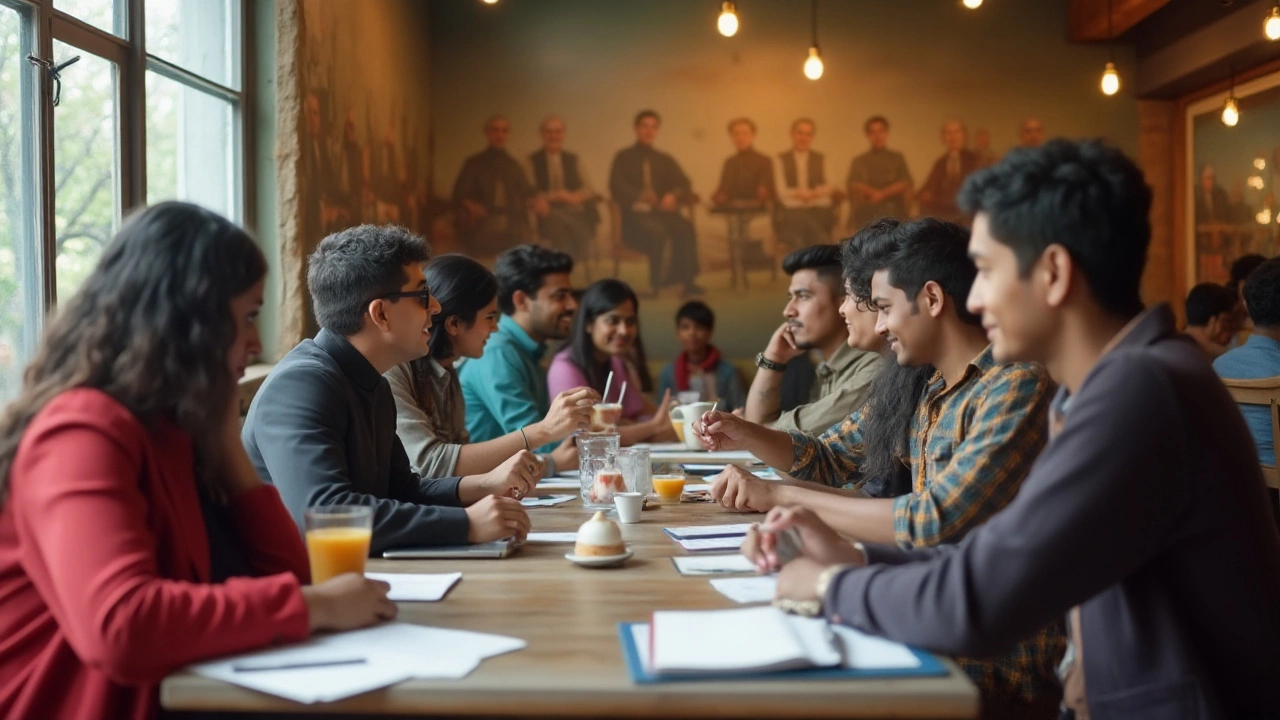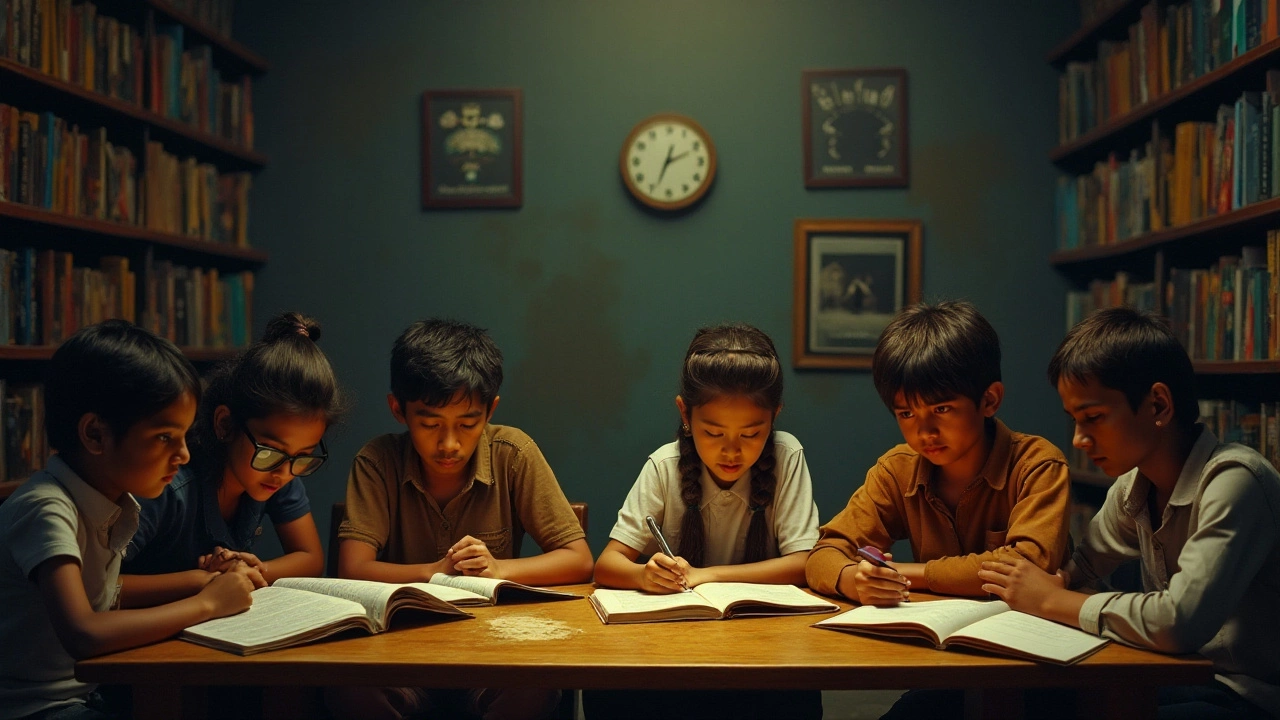In the pursuit of academic and professional achievement, certain competitive exams have earned a reputation for being notoriously difficult. Whether it's the intricate content, the time pressure, or the intense competition among candidates, some exams push the limits of human endurance and intellect.
From the civil service aspirations of UPSC candidates in India to the colossal expectations faced by those undertaking China's Gaokao, each test presents its own unique set of challenges. Success schemes aren’t just about rote learning but involve meticulous planning, clever strategies, and above all, mental resilience.
- Understanding Exam Difficulty
- Top Hardest Competitive Exams
- Strategies for Success
- Real Stories Behind Success
Understanding Exam Difficulty
The challenge of passing competitive exams is a deeply fascinating subject, often compared to rigorous intellectual marathons designed to test the limits of human problem-solving and memory skills. The very nature of these assessments is reflective of the high stakes involved, where not just a career, but sometimes one's status or dreams are on the line. Consider the UPSC exam in India, which draws the brightest minds competing for a select few administrative positions, yet the success rate remains astoundingly low. This scenario isn’t unique to UPSC. China’s Gaokao is another infamous hurdle—it's not merely a test but a national event that shapes educational trajectories for millions, with an acceptance rate that could mirror elite university application statistics in the West.
When analyzing what makes an exam categorically 'difficult,' several factors emerge. First is the depth and breadth of subject matter tested. Exams like the Chartered Financial Analyst (CFA) program demand a profound understanding of finance theories and real-world applications, with a commitment spanning several years. Then there's the pressure of competition itself. With millions vying for a handful of spots, even minute differences in scores can tip the scales—this adds a psychological dimension, where endurance becomes just as crucial as knowledge mastery.
An important aspect contributing to the difficulty of certain exams is the application of time constraints combined with complexity. Examinations are often designed to challenge not just the candidate’s acquired knowledge but also their cognitive agility under pressure. For instance, solving intricate problems in the International Mathematical Olympiad within a limited time examines not just the grasp of mathematics but also the tactical approach in problem-solving. As highlighted by Professor John Hattie, educational researcher, "Assessment drives learning. The focus should be on the right mix of challenge and exposure to ensure deep learning."
“Assessment drives learning. The focus should be on the right mix of challenge and exposure to ensure deep learning."
— Professor John Hattie
Moreover, the subjective element of examiner biases in interpretation can sometimes increase an exam's perceived difficulty. Essay-based and subjective question papers rely heavily on the ability of the candidate to express complex concepts clearly and succinctly, which adds an additional layer of challenge for those who may not be as confident in their language skills. Interestingly, a report suggests that exams which are known to adapt and evolve based on previous years' performances tend to be among the hardest. This dynamic enhances unpredictability, crafting an additional layer of difficulty.
A fascinating way to understand these exams is through a comparison of pass rates. Let's take a look at the following representation that shows a visual comparison among some of the world's most challenging exams:
| Exam | Pass Rate (%) |
|---|---|
| CFA (Level I) | Approx. 42% |
| UPSC (Civil Services) | Approx. 0.1% |
| Gaokao | Approx. 60% pass for college placement |
This table encapsulates a stark reality; while pass percentages are part of the story, the unique complexities each exam entails make them daunting—and sometimes feared—tasks worldwide. Understanding these exams requires more than just surface-level knowledge, it involves appreciating the multifaceted components that combine to test more than academic skill, across diverse landscapes.

Top Hardest Competitive Exams
Diving into the world of competitive exams, certain tests often top the list when it comes to difficulty, either due to their rigorous content, the pressure of limited time, or the fierce competition they induce among aspirants. Leading the pack is India's UPSC Civil Services Examination, a grueling multi-stage exam that selects candidates for the country's prestigious civil services. Every year, millions vie for just a few hundred coveted positions. The variance in the passing percentage is often less than 0.1%, a testament to its notorious difficulty. This exam is not only a test of knowledge but also one of perseverance over a year-long process.
Across the globe, China's Gaokao stands as one of the most intense exams students face. As the main college entrance exam in China, the Gaokao is known for its ability to decide the future course of students' academic and professional lives, with preparation starting as early as elementary school. The exam covers a wide range of subjects, and the pressure is immense as it's seen as a pivotal event in a young person's life. Interestingly, massive societal focus on excelling in the Gaokao sends ripples of anxiety and meticulous preparation across families.
The Chartered Financial Analyst (CFA) exams are famed for the level of difficulty they pose even for financial professionals. Globally recognized by top investment firms, the CFA exams consist of three levels of exams, each characterized by an exhaustive coverage of topics including ethics, financial analysis, and portfolio management. It’s reported that the average candidate takes four years to clear all levels, making it not just a test of skill but also commitment and stamina.
The Japanese bar exam, historically known for its almost minuscule pass rates of below 5%, presents another daunting challenge. In Japan, passing the bar exam is a respected achievement that requires years of dedicated study. The exam is notorious for its strict criteria and the sheer breadth of the legal knowledge it tests. Interestingly, recent reforms have sought to make it more accessible, yet it retains its formidable reputation.
In an illuminating take on the nature of academic excellence, Albert Einstein once remarked,
"It’s not that I’m so smart, it’s just that I stay with problems longer."His words echo the mindset required to tackle these challenging exams. The commitment and resilience needed often determine success more than sheer intelligence.

Strategies for Success
Successfully navigating the demanding world of competitive exams takes more than just intelligence. It requires a multi-faceted approach that encompasses time management, stress reduction, strategic study habits, and mental toughness. One of the key components of success is developing a study plan that prioritizes consistency over cramming. Establishing a routine with regular study sessions prevents burnout and aids long-term retention. It's beneficial to allocate time for each subject based on personal strengths and weaknesses, letting more challenging areas receive additional focus while ensuring strong subjects are reviewed sufficiently too.
Another crucial strategy involves making use of practice tests. These are invaluable tools for familiarizing yourself with the exam format and timing. Analyzing performance on these tests can also help identify gaps in knowledge that need attention. Time management during exam preparation is mirrored in the actual test environment, where effective pacing often becomes a decisive factor. Simulating test conditions with strict time limits during practice can tremendously improve performance under pressure.
Equally important is dealing with the psychological stress that accompanies the preparation phase. Techniques such as mindfulness meditation, regular exercise, and maintaining a balanced diet have been shown to contribute positively to mental health and cognitive function. Engaging in these activities helps reduce anxiety levels, thus providing a clearer mind for study and exam performance. A balanced diet high in omega-3 fatty acids, antioxidants, and other brain-boosting nutrients can also support optimal cognitive functioning.
Moreover, resilience and adaptability are perhaps the most understated yet vital components of succeeding in any of the world’s hardest exams. Theodore Roosevelt once said,
“The only man who never makes mistakes is the man who never does anything.”Embracing failures as learning opportunities rather than setbacks allows candidates to recalibrate their strategies efficiently. Regular reflection on what methods yield the best results is key. Personalized strategies often outperform generic tips; therefore, aspiring exam takers should not shy away from making tweaks and changes to their study methods based on self-reflection and feedback.
Lastly, creating a support system is often an overlooked yet significantly beneficial strategy. Be it peers who are equally committed, mentors offering guidance, or family providing emotional backing, having a network of support can be a remarkable morale booster. Study groups can provide diverse perspectives on difficult topics and help in maintaining motivation. Knowing that you are not alone in your journey can make the arduous path a lot more bearable, even during the times the journey feels solitary.

Real Stories Behind Success
Talking about competitive exams, the tales of those who triumph sometimes reads like epic sagas of determination and endurance. One such crown jewel of achievement amidst countless aspirants is the story of Ananya Srivastava, a gritty individual who conquered the UPSC examination after three relentless attempts. Despite the initial failures, Ananya remained undeterred, armed with her exam preparation strategies and ceaseless resolve. What sets stories like hers apart isn't just hard work but the ability to adapt, constantly tweaking her preparation strategy based on past learnings. Aspirants like Ananya teach us much about resilience and adaptability.
A pivotal aspect often shared among successful examinees is the creation of a strong study plan. For instance, George Thompson's journey toward passing the CFA Level III exam was nothing short of organized chaos. Juggling a full-time job, George's experience highlights the significance of time management. Dividing his days into strict segments for work, study, and brief relaxation, George exemplifies how implementing a balanced schedule can pave the path to success, allowing aspirants to tackle the difficult exams effectively while maintaining sanity.
Inspirational stories also emerge from the countless who undertook China's infamous Gaokao. Mei Lin, a top scorer, speaks of the unwavering familial and community support she received, sharing insights on how non-academic encouragement plays a significant role in an arduous academic endeavor. Lin familiarly emphasizes sharing her notes and struggles with friends as a tool for learning, exemplifying peer learning's impact. This shows how genuine camaraderie and support are invaluable assets, sometimes transcending pure academic support.
"Success doesn't just come from what you do occasionally; it comes from what you do consistently" — Marie Forleo
Let's not forget that part of the storytelling involves recognizing failures as part of the tribute to success. Emma Peterson's journey through the grueling path of the British Chartered Accountancy sees multiple setbacks. Yet, the key takeaway from her experience is the perseverance she attributes to learning from each failure, making it a step towards eventual victory. Her journey underlines that setbacks are merely setups for comebacks.
A small yet impactful part of these success narratives often includes small rituals or habits these individuals align with. There's talk of meditation, hobby breaks, or even simply stepping away at times, showing the importance of mental health and stress management in rigorous exam preparation. Deepak Menon, who excelled in the IIT-JEE, often credits his success to the balance of structured learning and periodic retreat into nature to regain his focus and combat fatigue, showing the holistic approach of successful people.
